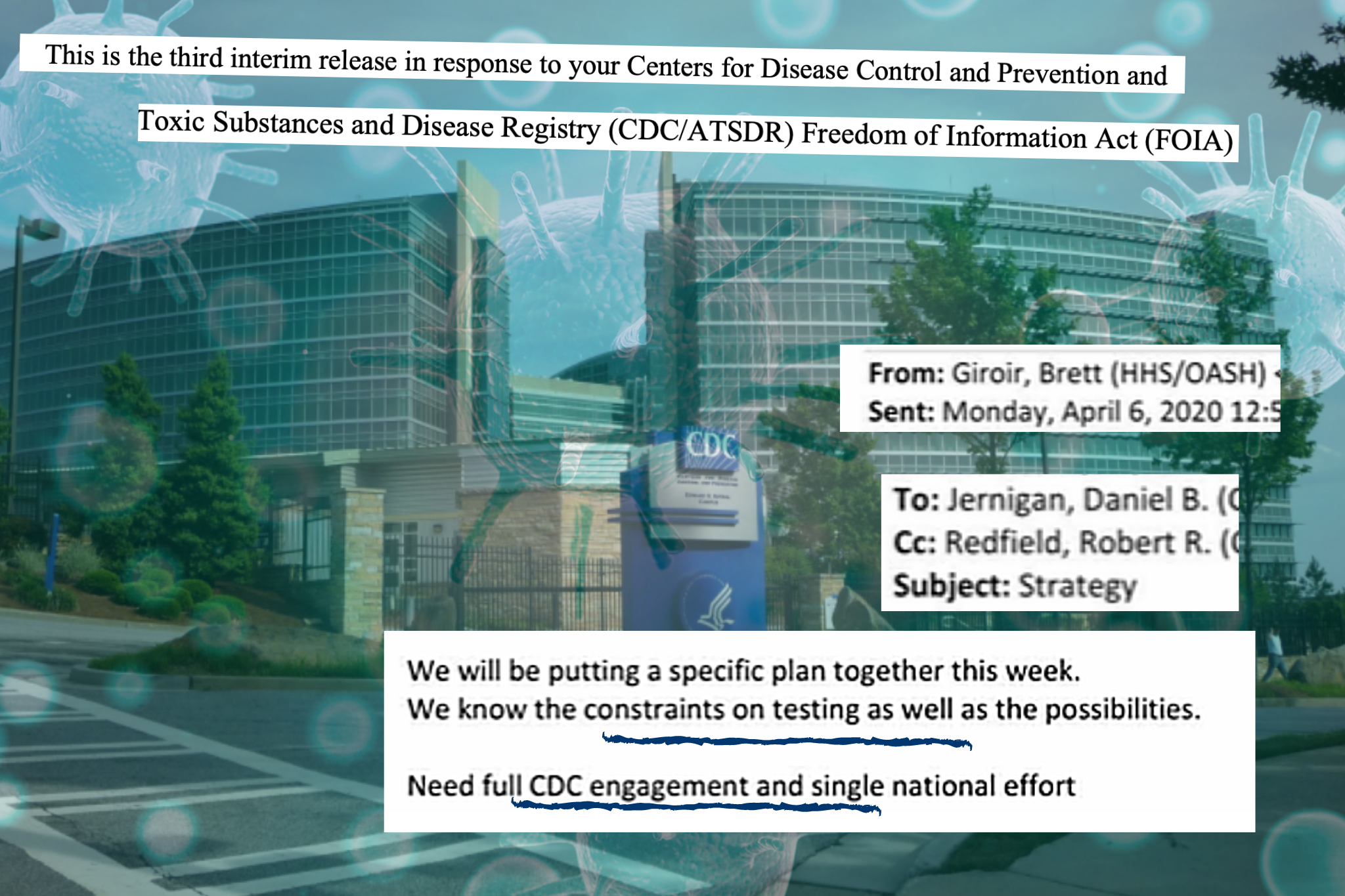
CDC Releases Hundreds of Pages of Records in American Oversight Lawsuit
On Friday, the CDC released more than 700 pages of records sought by American Oversight in our lawsuit for the pandemic-related communications of top officials.

On Friday, the Centers of Disease Control and Prevention released more than 700 pages of records sought by American Oversight in our lawsuit for the pandemic-related communications of top officials.
The records are heavily redacted, making it difficult to ascertain the full scope of many of the email discussions. For example, on March 7, 2020, CDC official Anne Schuchat and others respond to an email regarding a “cruiseline travel advisory,” likely from the White House, that is entirely redacted. Similarly, an exchange between CDC Director Robert Redfield and CDC official Daniel Jernigan regarding “POTUS Engagements” shows Redfield responding to an email from Jernigan that is fully redacted — down to the time stamps and the names. Based on our Freedom of Information Act request, it’s likely that the term “POTUS” is hidden under many of the redactions throughout the document production.
The documents include an email from Feb. 12 — well before the nation began locking down, and even before the nation had experienced its first Covid-19 death — in which Robert Kadlec, the assistant secretary for preparedness and response at the Department of Health and Human Services, sent Redfield, then-CDC Chief of Staff Kyle McGowan, and others a set of PowerPoint slides regarding a “Mitigation Plan Brief.”
In the email, Kadlec references a “shift from containment to mitigation.” Federal officials did not start talking more openly about this shift until a month later. (The CDC redacted the content of the PowerPoint slides.)
By early April, the number of Covid-19 deaths was spiking in many parts of the United States, with shortages of testing and personal protective equipment making the situation in many places dire. On April 6, HHS Assistant Secretary Brett Giroir sent top CDC officials a “concept paper” regarding a “Strategy for Emergence” that apparently focused on a “return to work.”
In his email, Giroir noted that he recognized the “constraints on testing,” but emphasized the need for a “single national effort.” But less than two weeks later, the president reversed course, telling governors, “You are going to call your own shots.”
Also included in the set of records are a number of emails regarding a postcard that the U.S. Postal Service proposed sending out about Covid-19 and social-distancing guidelines. On March 12, Michael Elston, the secretary of the USPS Board of Governors, emailed CDC officials with “postcard mock-ups” they had prepared the week before, seeking CDC-approved messaging to include.
The cards were criticized for prominently featuring President Donald Trump’s name, with a cost of $28 million to USPS. The emails released by the CDC indicate that the project was a “high priority,” and that they were intended for “English-speaking US residences.”
The records also contain an email from Kadlec that was sent less than three weeks before FDA official Peter Marks reportedly pitched the Operation Warp Speed vaccine program to the White House. Kadlec’s email, sent on April 12 to a number of officials including Marks, contains a “Vaccine strategy” PowerPoint and a “Project Warp Speed” draft memo. Again, the CDC withheld the contents of both attachments.
Finally, the emails reveal frustration with negative press coverage of the CDC and FDA, and shed light on February efforts to evacuate U.S. citizens from the Diamond Prince cruise ship, adding to previous reporting that suggested the State Department rather than HHS was behind the decision to fly infected passengers home against CDC wishes.